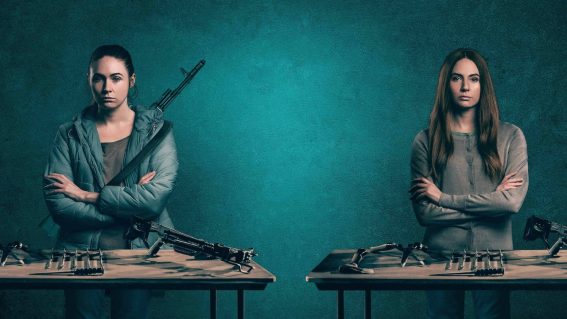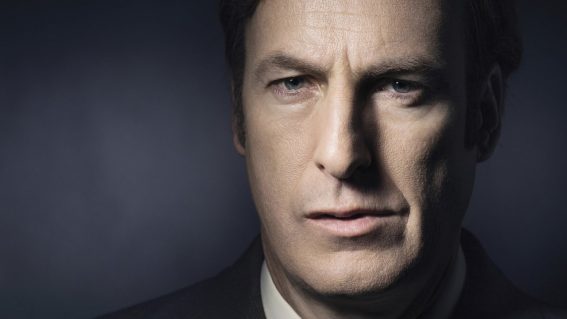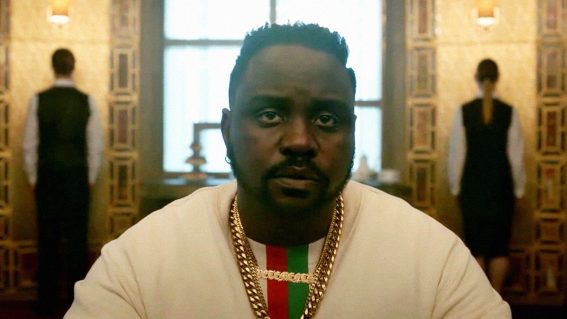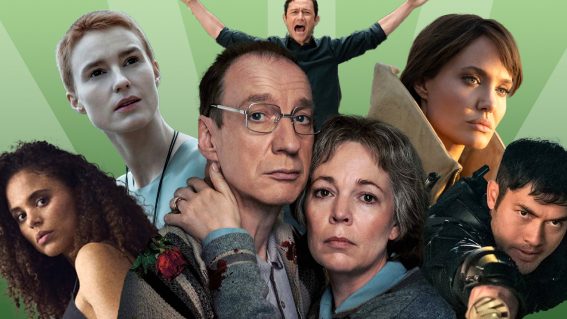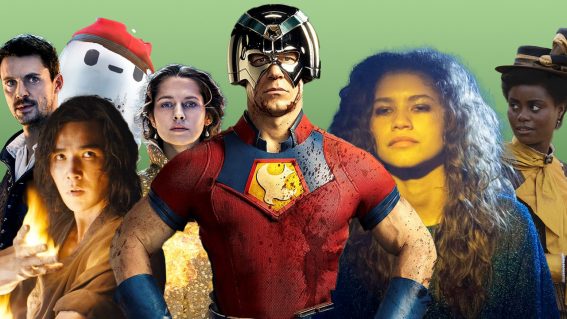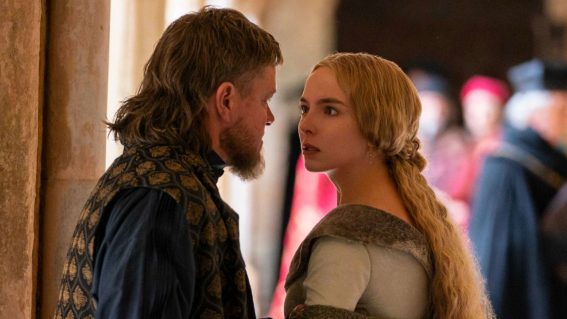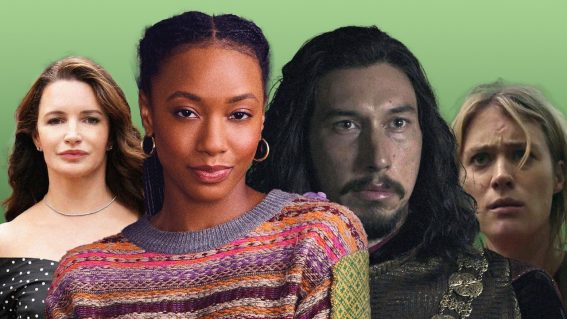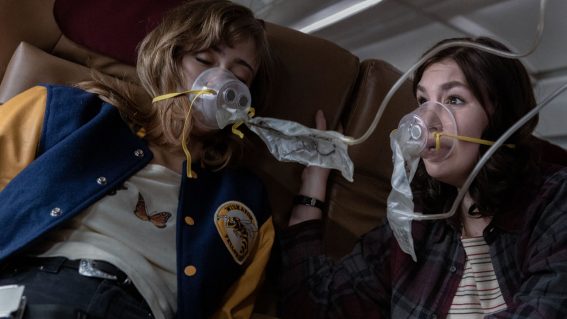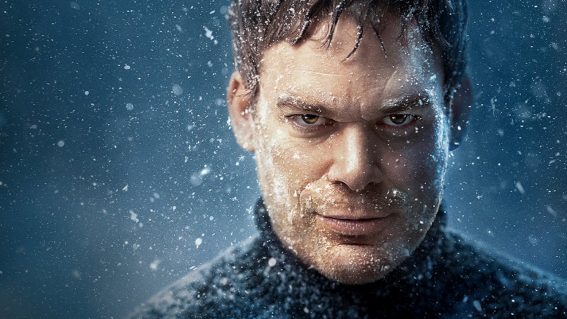New series The Nevers continues HBO’s dalliance with sci-fi and fantasy
While brushing over some heavy topics, The Nevers maintains a sense of fun throughout.
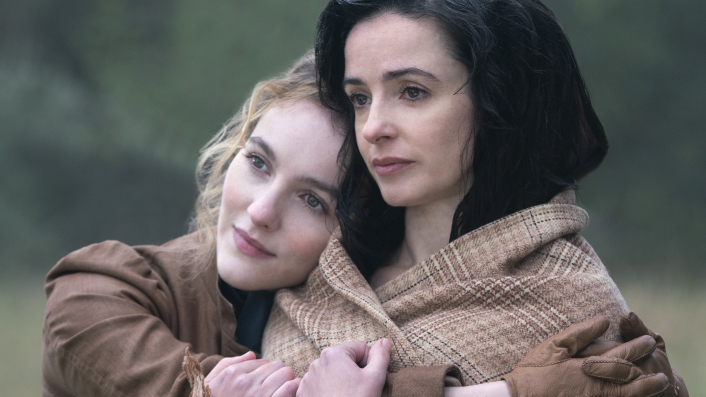
Featuring a chosen few Londoners who suddenly possess strange new abilities during the last years of Victoria’s reign, HBO is about to launch new sci-fi action series The Nevers – watch it on Neon from April 12. It’s the latest example of HBO making sure to infuse its fantasies with real-world concerns, writes Tony Stamp – though it maintains a sense of fun throughout.
Every now and then I’ll see someone ask the question: when you think of the HBO static logo, what’s the first show that springs to mind? For a lot of people, it’s either The Sopranos or Curb Your Enthusiasm, two that drew early acclaim. Prior to that was the prison show Oz. There was Deadwood and The Wire, and more recent entries like Boardwalk Empire. A roster of heavy hitters.
See also:
* Everything on Neon this April
* All new streaming movies & series
The Sopranos’ success emboldened shows like Lost to tell season-long stories, edging away from the standard of self-contained episodes. Over on the big screen, the MCU turned its movies into a never-ending story thread, each one just a link in a chain. And HBO rolled the dice on a series of fantasy novels, and Game of Thrones became a mega-hit.
The programming on the network hasn’t been the same since. The brand is built less around its stable of serious dramas, broadening to include shows like Westworld, Watchmen and His Dark Materials, which tell fantastical stories with adult intent.
Watchmen was a superhero show, albeit a postmodern one, and now HBO has delivered The Nevers, which I’d argue falls into the same bracket. It’s not an adaptation this time but an original idea, one that sees people in London just prior to 1900 being blessed/cursed by extraordinary abilities. These aren’t always your traditional superpowers per se, ranging from someone with an especially green thumb who can magically grow plants to someone who has become twelve feet tall.
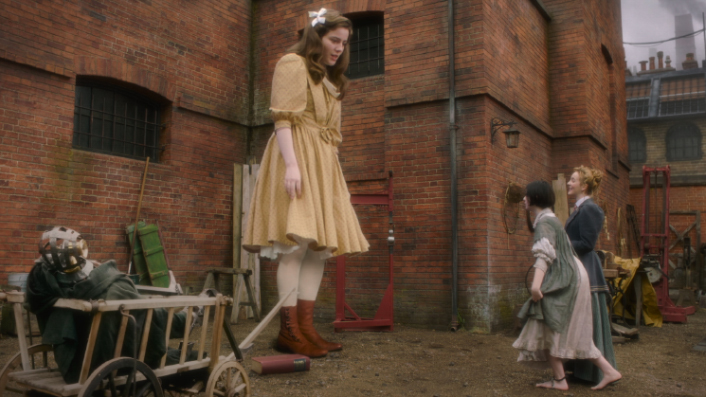
The show revolves around an orphanage housing ‘The Touched’ (people with powers). This being a fantasy show, there’s a bit of terminology to grapple with, that can whiz past quickly if you’re not listening out. Each person’s power is called their ‘Turn’. There are shades of Xavier’s School for Gifted Youngsters here, and much like the X-Men’s mutants, the Touched function as metaphors for oppression.
The orphanage is run by two wonderfully-named protagonists, Amalia True (Laura Donnelly), and Penance Adair (Ann Skelly). The former can see the future, the latter invents machines that should not exist in the 1800s (all sorts of steampunk gadgetry, including light bombs and retro-future automobiles). The pair locate and shelter the Touched, and in episode one find themselves up against a cabal of masked men with a similar goal.
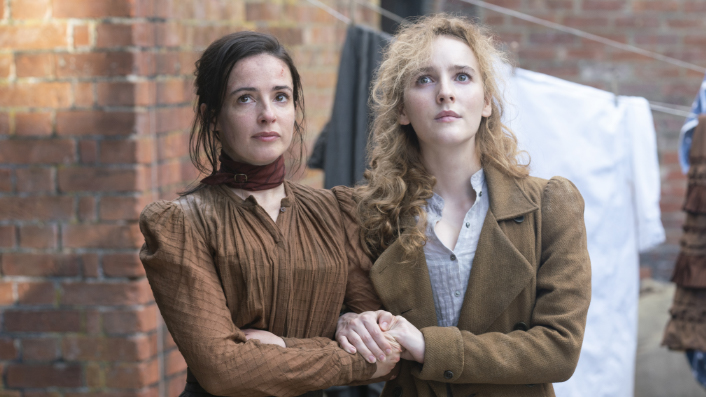
The show has a lot of players (I recommend paying attention to the opening montage), and a lot of conflicting agendas. At least three characters are presented as potential villains, but I’m not sure any of them will end up that way. Because The Nevers, in true mystery box fashion, holds back a lot of information. We actually see the moment where everyone receives their Turns: a mysterious craft flew over London dispensing… something. Everyone who saw it seemed to forget (with one notable exception). The engine that drives the show is finding out who sent the craft.
And this is where we get into the show’s (none too subtle) themes. HBO makes sure to infuse its fantasies with real-world concerns: Watchmen was explicitly about race, Westworld about freedom of choice. The Nevers builds this into its plot: only women are gifted abilities, along with (in the words of one of the show’s villainous old men), “immigrants and deviants”. Among the main characters is Horatio Cousens (Zackary Momoh), a Jamaican doctor who can heal wounded flesh with his bare hands. In one extremely loaded line of dialogue, the same stuffy old man underlines that “no men of stature” were afflicted. You can see where this is heading.
Amalia True not only has a power that raises questions about determinism (she’ll do things because she saw she’s going to do them), but comes loaded with questions about her past. At one point, she says the face she’s wearing isn’t hers. She’s a widow to an as yet unidentified spouse, and the show drops hints that she’s been to war and suffers from PTSD. Above all she seems to love a fight, pounding away at men twice her size with relative ease. It’s a character that borders on cliche but is granted a good deal of shading.
The show does this a bit: introducing us to archetypes like the gruff policeman who points at a murder victim and says “I work for her!”, then goes on to give him a multitude of more interesting characteristics. Like a lot of recent fiction, it sometimes feels like it’s riffing on its own format, and that’s fine when the characters are this good.
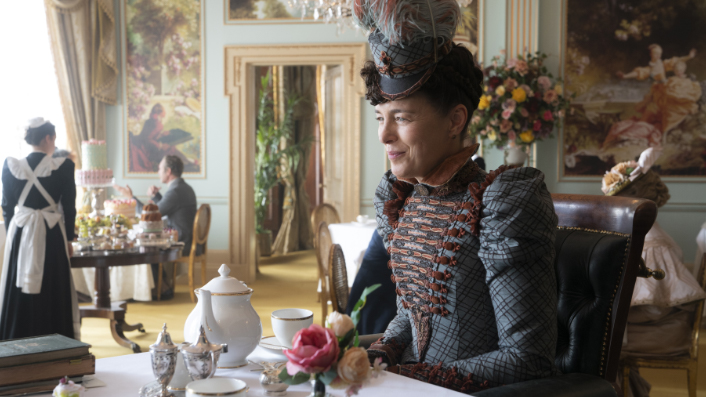
I think its biggest asset is the cast of relatively unknown actors. Donnelly and Skelly are instantly likeable, sporting more than enough charisma to carry the show. There are a few familiar faces, like Nick Frost playing against type as the murderous “Beggar King”, and Olivia Williams as the orphanage’s benefactor. A favourite so far is Pip Torrens and his awesomely droll delivery (fans of Preacher will know him as Herr Starr).
The Nevers continues HBO’s dalliance with sci-fi and fantasy, and I’d argue it tiptoes towards the type of TV it helped put out of fashion all those years ago: it doesn’t have the gravitas of something like Game of Thrones, and while it brushes over some heavy topics, it maintains a sense of fun throughout. There are a lot of quips. It’s less Watchmen, more… Buffy the Vampire Slayer?
Because the elephant in the room here is that The Nevers was created by Joss Whedon, director of the first two Avengers films, creator of Buffy and writer of plenty of X-Men comics. Recently stories about his on-set behaviour have surfaced, first from Justice League’s Ray Stevens, then from his Buffy cast. These accounts frame him as an aggressive bully, and include implications of sexism and racism.
Whedon has left The Nevers, citing exhaustion (“We have parted ways with Joss Whedon. We remain excited about the future of The Nevers and look forward to its premiere,” says HBO). In what seems to be a gift to the show, Philippa Goslett is taking over. The Nevers is explicitly about feminism, and it seems only right that a woman should helm it from here on out.
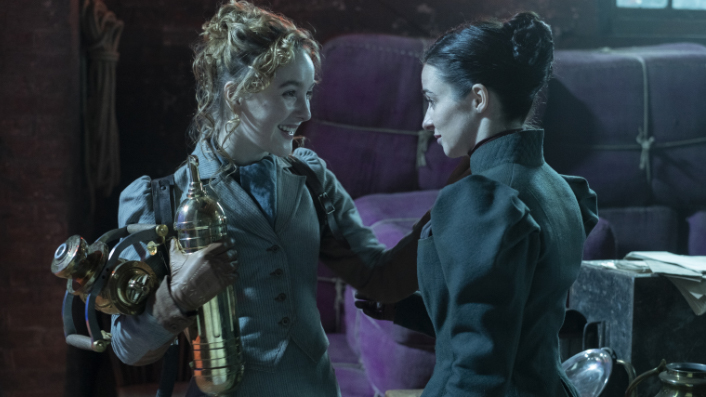
In one bit of dialogue from the pilot, Torrens has the following menacing exchange with Donnelly, summing up the show’s thesis statement.
“There’s a harmony to our society that’s worth preserving”, growls the former, the latter responding “As I understand it a harmony is made up of different voices sounding different notes”.
Torrens responds, with a line that feels like a Freudian slip from the show’s disgraced creator: “Yes, and one is always above the other”.







